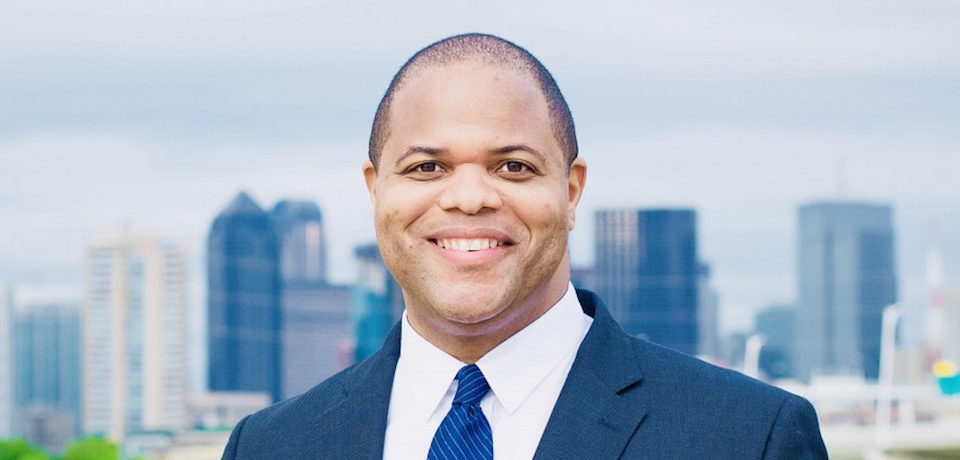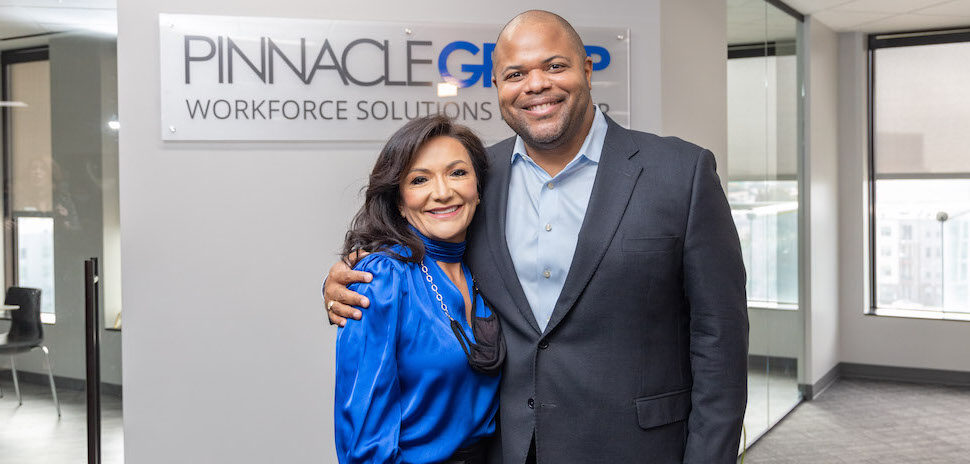Between rising rates of violent crime and a global health pandemic, Eric Johnson’s term as Mayor of Dallas has been largely spent mitigating crises. During a virtual conversation hosted by the Dallas Regional Chamber and moderated by DRC President and CEO Dale Petroskey, Mayor Johnson reflected on his first full year at city hall and previewed his priorities for the remainder of his term.
Mayor Johnson’s foremost priority is guiding the city through the remainder of the COVID-19 outbreak, which has infected nearly 130,000 Dallasites and taken more than 12,000 resident lives. While Dallas County acts as the primary health authority for the city’s residents, the mayor emphasized key efforts in three areas the city has undertaken to protect its people and businesses.
For one, Mayor Johnson stressed his administration’s role in assuring residents that Dallas will persevere through this crisis.
City hall has also worked to provide accurate and up-to-date information about the state of the pandemic in Dallas. Early on, Mayor Johnson required COVID-19 testing centers to report administered and positive tests. In addition, the mayor began tweeting daily statistics on hospital resources, such as ICU bed capacity and available ventilators. These data points were also summarized and communicated in an ongoing, daily COVID-19 email from the mayor.
“We think that people make better decisions when they have more information, and they will trust the folks who are trying to help them get through this if they feel like we aren’t hiding anything from them,” he said.
Mayor Johnson has also endeavored to model the behaviors known to mitigate risk of contracting COVID-19, such as mask-wearing and social distancing. For example, the mayor’s official government portrait was updated to display him wearing a mask. He also stayed local for the Thanksgiving holiday after stressing the dangers of traveling—an uncommon example of city mayors following their own guidance this holiday season.
Despite the fact that most resources to combat public health crises rest with the county, city officials have stepped up to provide what critical relief they can to Dallas small businesses and workers adversely affected by the coronavirus. Notably, Mayor Johnson mobilized $5 million for small business relief and another $14 million to aid individuals struggling to make rent or mortgage payments. The city also leaned on its private sector partners to connect businesses with PPE when such equipment was in short-supply.
The pandemic is just one of two crises to which the city of Dallas is responding in 2020. While COVID-19 remains front and center, Mayor Johnson is keenly focused on stemming a troubling rise in violent crime that has been on the upswing since 2019.
“We do have a very serious public safety challenge on our hands in Dallas,” he said. “The numbers have been trending the wrong way for a couple of years now.”
There was cause for alarm last year as Dallas saw increases in homicides, aggravated assaults, and domestic violence while most other major U.S. cities experienced sharp decreases in violent crime. The trend for Dallas has only continued in 2020 as the city exceeded the total number of homicides from 2019 with nearly a month left on the calendar.
If that trajectory holds, Dallas could record a higher total homicide count than in 2004, when the city earned the FBI’s designation as the country’s most dangerous large city.
The increase in violent crime has been accompanied by a shrinking police force. The Dallas Police Department employed 3,500 officers as late as 2015, said Mayor Johnson. Now, the department barely clears 3,000 and is on track to lose another 50 officers to attrition by the end of the year.
Public safety has been a priority for Mayor Johnson since the outset of his term. Last year, the mayor asked the chief of police to prepare and submit a plan to reduce crime throughout the city. During the Dallas City Council’s last budgeting cycle, Mayor Johnson was adamant about increasing funding for the city’s police department—an effort that was ultimately unsuccessful.
As the city seeks a replacement for outgoing Police Chief U. Reneé Hall, Mayor Johnson is optimistic he will soon have a partner in reducing crime.
“I want them to say, and mean it, that the buck stops with them when it comes to crime in this city,” he said. “I want a true partner in lowering the crime in this city because that is the fundamental job of the police department and, frankly, the fundamental job of city government.”
Mayor Johnson briefly touched on initiatives to develop Dallas’ workforce and transform the city into a destination for startup companies. On the former effort, Mayor Johnson touted the Dallas Works program—a rebranded version of the Mayor’s Intern Fellows Program. The new program promises summer work opportunities for a broader range of Dallas students. Despite its first year being disrupted due to COVID-19, Dallas Works exceeded the size of previous iterations of the initiative. Ultimately, Mayor Johnson hopes Dallas Works will engage 5,000 students annually.
As for startups, Mayor Johnson noted the newly announced Innovation Taskforce, headed by Dallas entrepreneurs Trey Bowles and Mandy Price. The taskforce is expected to make a set of recommendations to the city’s Economic Development Committee in the spring of 2021 focused on how the city should aid in the development of a supportive culture for startup companies in Dallas.
“I think Dallas has a perception of being really all about the big Fortune 500 companies,” said Mayor Johnson. “I want to figure out how we can make Dallas more closely aligned with [the ecosystem] around startups.”
Between these efforts, Mayor Johnson hopes to make further progress in ensuring that Dallas is an economic hub for all types of businesses and people, particularly among communities of color habitually left behind by the city.
The Year-End Conversation with Mayor Johnson was presented by Blue Cross and Blue Shield of Texas. Atmos Energy Corporation and Lockheed Martin were gold sponsors of the event; Axxess, DFW International Airport, Oncor, Southwest Airlines Co., and Toyota Motor North America were silver sponsors.
A version of this story first appeared on the Dallas Regional Chamber site. Dallas Innovates is a collaboration of D Magazine Partners and the Dallas Regional Chamber.
![]()
Get on the list.
Dallas Innovates, every day.
Sign up to keep your eye on what’s new and next in Dallas-Fort Worth, every day.

































































